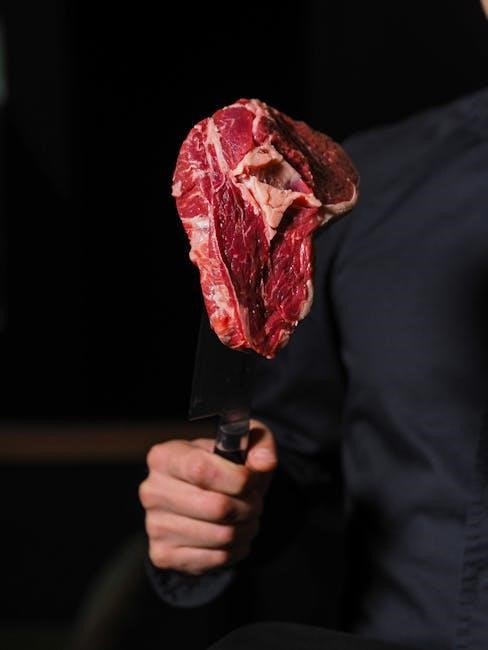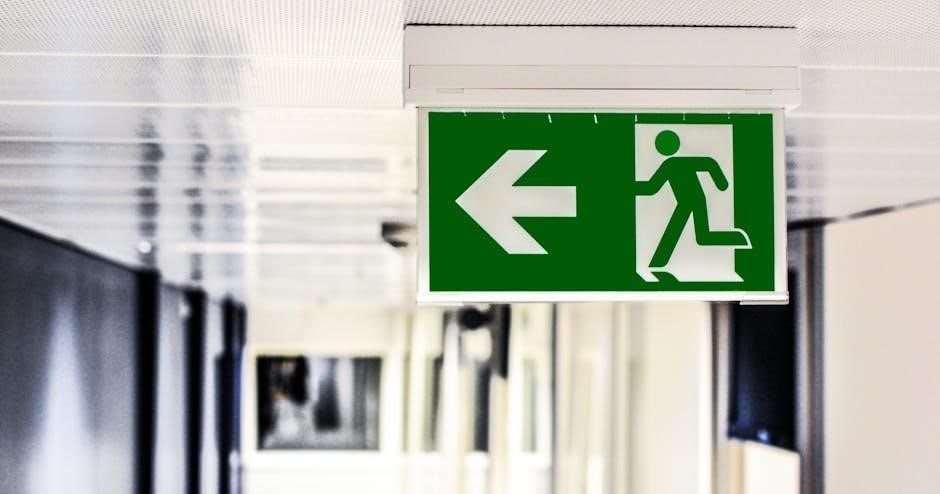A butcher is a skilled professional specializing in preparing and selling meat. Their expertise ensures quality cuts and proper handling. Building a relationship with your butcher can enhance your culinary experiences.
What is a Butcher?
A butcher is a skilled professional who specializes in the preparation and sale of meat. Their primary role involves cutting, trimming, and grinding meat to meet customer preferences. Butchers work with various types of meat, including beef, pork, poultry, and game, ensuring high-quality products. They often possess extensive knowledge of different cuts and cooking methods, making them valuable resources for culinary advice. Some butchers also handle special orders, such as rare or unusual meats, and may offer services like marinating or seasoning. In addition to technical skills, butchers must maintain cleanliness and safety standards in their workspace. While some work in grocery stores, others operate independent shops, where they take pride in their craft and customer service. A good butcher is essential for those seeking fresh, expertly prepared meat and personalized guidance.
Importance of a Good Butcher
A good butcher plays a crucial role in ensuring the quality and safety of meat products. They possess the expertise to select, cut, and prepare meat with precision, guaranteeing freshness and flavor. Butchers are essential for maintaining high culinary standards, as they can provide rare or hard-to-find cuts and offer tailored recommendations. Their knowledge of meat preparation enhances cooking experiences, whether for everyday meals or special occasions. Additionally, a skilled butcher can help reduce food waste by utilizing every part of the animal. Building a relationship with a reliable butcher fosters trust and ensures consistent quality. They often take pride in their craft, which reflects in the products they offer. Overall, a good butcher is indispensable for anyone seeking premium meat and personalized service.

Understanding the Butcher’s Role
A butcher’s role involves preparing and selling high-quality meat, offering expert advice, and handling special requests. They ensure precision in cutting and provide knowledge on meat preparation and selection.
Primary Responsibilities
A butcher’s primary responsibilities include cutting, trimming, and preparing meat for sale. They ensure high-quality products by carefully selecting and handling each cut. Butchers also provide expert advice, helping customers choose the right meats for various recipes. Additionally, they manage orders, maintain hygiene standards, and operate shop equipment. Their role requires precision, attention to detail, and strong customer service skills. A good butcher takes pride in their work, ensuring satisfaction and building loyalty. Regular interactions allow them to understand customer preferences, offering personalized recommendations. This expertise makes butchers invaluable for home cooks and professional chefs alike, enhancing culinary experiences through their knowledge and dedication.
Qualifications and Skills
To excel as a butcher, specific qualifications and skills are essential. Formal training through apprenticeships or culinary programs is often preferred, providing foundational knowledge in meat preparation and safety. Proficiency in using specialized tools like knives and saws is critical. Strong communication skills are also vital, as butchers must interact with customers to understand their needs.Attention to detail is crucial for precise cutting and trimming. Physical stamina is required due to the demanding nature of the job. Additionally, knowledge of various meats, including their origins and best uses, enhances a butcher’s expertise. Time management skills are necessary to handle multiple tasks efficiently. Finally, maintaining a clean and organized workspace is imperative for hygiene and safety standards. These qualifications and skills ensure a butcher can provide exceptional service and products, fostering customer trust and satisfaction;

Communication Tips
Effective communication with your butcher involves clarity and respect. Ask specific questions, listen actively, and provide feedback to ensure mutual understanding. Politeness and patience yield better results.
Polite Requests and Advice
When interacting with your butcher, politeness and clarity are key. Start with a friendly greeting, then state your request clearly. For example, “Could you please trim the fat from this cut?” or “Do you have any recommendations for a roast?”
Asking for advice shows respect for their expertise. Questions like, “What’s the best way to cook this?” or “Can you suggest a cut for a special occasion?” encourage helpful responses. Avoid vague requests and be specific about your needs.
Express gratitude for their assistance. A simple “Thank you” or “I appreciate your help” fosters a positive relationship. Remember, a polite tone and respectful demeanor can lead to better service and tailored advice.
Asking for Clarification
Asking for clarification is essential when ensuring you understand the butcher’s advice or recommendations. If unsure about a cut of meat or cooking method, politely ask, “Could you explain that again?” or “What do you mean by that?”
Seeking further details shows you value their expertise. For example, “Can you elaborate on how to best prepare this cut?” or “What makes this type of meat ideal for my needs?”
Don’t hesitate to ask questions if something isn’t clear. It ensures you leave with the right product and confidence in its preparation. Remember, clarification is key to a satisfying experience. Always feel comfortable seeking more information.
Discourse markers like “so,” “right,” and “okay” are useful in conversations with your butcher. They help maintain flow and show engagement. For example, “So, you recommend this cut for grilling?” or “Right, I’ll try that seasoning suggestion.” These markers signal understanding and encourage the butcher to elaborate. Phrases like “Okay, got it” or “Sure, that makes sense” ensure clarity. Using them appropriately makes interactions smoother and more productive, fostering a better relationship with your butcher. They also help in confirming your understanding of their advice, ensuring you leave with the right products and knowledge. By incorporating discourse markers, you enhance communication and make the experience more efficient and enjoyable for both parties. A good butcher can handle special orders, such as rare cuts or unique items like lamb’s tongues. Before requesting, consider their expertise and availability to fulfill your needs effectively. When placing a special order, consider asking for rare cuts like lamb’s tongues or rocky mountain oysters. Discuss your specific needs with the butcher, ensuring they understand your request. Always inquire about availability and lead times, as some items may require advance notice. Be clear about quantities and preferences, such as grinding, trimming, or tying. Respect the butcher’s expertise and ask for recommendations if unsure. Building trust is key, so feel free to ask about handling and preparation tips. Remember, a good butcher can also suggest alternatives if your desired item is unavailable. By being open and communicative, you can ensure your special order is fulfilled to your satisfaction. This collaboration not only enhances your experience but also strengthens your relationship with the butcher, ensuring future requests are handled with care and precision. Before making special requests, visit the shop to understand their offerings and atmosphere. Observe the butcher’s workload and shop environment to gauge their capacity for custom orders. Consider the butcher’s expertise and trust their recommendations, as they aim to provide quality products. Be mindful of the time required for special orders, as some items may need advance preparation. Check if the butcher has the necessary tools and skills for your request. Avoid making demands during peak hours when they are busy. Build rapport by being polite and respectful, showing appreciation for their work. Understand that while they may not fulfill every request, they strive to meet customer needs. Patience and clear communication are key to a successful interaction. By considering these factors, you can make informed and reasonable requests that align with the butcher’s capabilities and work ethic. When requesting rare or unusual items, communicate clearly and respectfully with your butcher. Items like lambs’ tongues or rocky mountain oysters may require special ordering, so inquire about availability and lead times. Some items, such as animal blood, may be difficult to source, so be prepared for limitations. Trust the butcher’s expertise and ask for recommendations on alternatives if your requested item isn’t available. Visit the shop beforehand to gauge their capabilities and willingness to accommodate unique requests. Be patient, as sourcing rare items may take time. Always respect the butcher’s knowledge and constraints, ensuring a positive interaction. By understanding their limitations and maintaining open communication, you can explore unconventional options while supporting their craft. Specialty meats include unique cuts and exotic options like lambs’ tongues and rocky mountain oysters. These items may require special orders, ensuring freshness and quality from trusted sources. A butcher offers a wide variety of meats, from common cuts like ground beef and chicken breasts to specialty items such as lamb tongues or rocky mountain oysters. These unique options cater to diverse culinary needs. Some butchers also provide exotic meats or rare cuts, which may require special ordering. However, not all items are always available, as certain products depend on supplier availability or seasonal demand. For instance, animal blood is a rare request that even skilled butchers might struggle to fulfill. Understanding the range of options helps customers make informed decisions. Building a relationship with your butcher can also provide insight into their sourcing and handling processes, ensuring you get the best quality for your needs. This collaboration enhances your cooking experience and supports local, sustainable practices when possible. Proper handling and preparation of meats are crucial for safety and flavor. Always store meats in sealed containers at the correct refrigerator temperature to prevent contamination. When thawing, do so in the fridge or cold water to maintain quality. Season meats evenly, allowing time for flavors to absorb before cooking. For even cooking, ensure meats are at room temperature. Use appropriate cooking methods—grilling, roasting, or pan-frying—depending on the cut. Avoid overcooking, as it can make meats tough. Let cooked meats rest before slicing to retain juices. For specialty cuts like lamb tongues or rocky mountain oysters, follow specific preparation techniques to enhance texture and taste. Proper handling ensures a safe and delicious dining experience, making the most of your butcher’s expertise and the quality of their products. Make a good first impression by being observant and respectful. Note the shop’s layout, cleanliness, and product variety. Approach the counter confidently, ready to engage with the butcher’s expertise. When entering a butcher shop, make a positive first impression by being polite and respectful. Greet the butcher warmly and show genuine interest in their products. Observe the shop’s layout and cleanliness, as this reflects their professionalism. Avoid hovering too closely over the counter, allowing the butcher space to work. Demonstrate patience, especially during busy times, and avoid interrupting when they’re handling other customers. Express gratitude for their expertise and time, as this fosters a positive relationship. Pay attention to any specific shop rules, such as ordering procedures or payment methods. By showing respect and courtesy, you create a welcoming environment for both yourself and the butcher, setting the stage for a fruitful interaction. A butcher shop is typically organized into distinct sections, each serving a specific purpose. The fresh meat counter is usually the focal point, displaying a variety of cuts, from steaks to ground meats. Adjacent to this, you’ll often find a processed meats section, offering items like sausages, bacon, and deli products. Specialty items, such as marinated meats or ready-to-cook dishes, may be placed near the front for visibility. The service counter is where you interact with the butcher, often equipped with scales, knives, and wrapping materials. Behind the counter, you might see the work area, where butchers prepare and package meats. Display cases are designed to showcase products attractively, while maintaining proper refrigeration. Understanding this layout helps you navigate the shop efficiently and engage confidently with the butcher. Respecting the butcher’s expertise and being polite are key. Clear communication shows appreciation for their craft and ensures your needs are met effectively and respectfully. Recognizing a butcher’s skill and experience fosters a positive interaction. Acknowledge their knowledge by asking for recommendations or advice, which demonstrates trust in their craft. This not only enhances your shopping experience but also strengthens your relationship with them. A respectful demeanor, such as thanking them for their time and effort, goes a long way in building mutual respect. By valuing their expertise, you create a collaborative environment where both parties benefit—ensuring you receive high-quality products and they feel appreciated for their work. Remember, butchers take pride in their trade, and showing respect for their skills encourages them to provide exceptional service and guidance.Using Discourse Markers

Special Orders
What to Ask For
Considerations Before Making Requests
Handling Rare or Unusual Items

Specialty Meats
Types Available
Handling and Preparation Tips

Navigating the Shop
Initial Impressions and Etiquette
Understanding the Layout

Etiquette and Behavior
Respecting the Butcher’s Expertise
Handling Challenges Gracefully
Encountering challenges, such as stock shortages or misunderstandings, is inevitable. Handling these situations with grace ensures a positive outcome. Remain calm and composed, avoiding frustration. Approach the butcher with a polite tone, expressing your concerns clearly. For example, if an item is unavailable, ask if they can suggest alternatives or when it might restock. Open communication fosters understanding and cooperation. Expressing gratitude for their efforts, even in tough situations, maintains a respectful relationship. Remember, butchers are committed to providing excellent service, and treating them with kindness during challenges strengthens trust and loyalty. By addressing issues gracefully, you contribute to a harmonious and productive interaction, ensuring both parties find a satisfactory solution.
Building Relationships
Building a strong relationship with your butcher fosters trust and loyalty. Regular visits and consistent communication help establish familiarity. Show appreciation for their expertise and recommendations to strengthen the bond. A positive rapport ensures personalized service and enhances your shopping experience.
Establishing Trust
Trust is the foundation of a successful relationship with your butcher. Start by showing genuine interest in their expertise and the quality of their products. Ask questions about the origin of the meats and seek their recommendations. Demonstrating respect for their knowledge and craftsmanship fosters mutual understanding. Over time, consistent interactions and open communication will build credibility. A trustworthy butcher will be honest about the availability of certain cuts and offer alternatives when needed. By valuing their opinions and relying on their guidance, you create a partnership that benefits both parties. This trust allows you to explore new culinary options confidently, knowing you’re receiving the best advice and products.
Regular Interactions and Loyalty
Regular visits to your butcher foster loyalty and strengthen your relationship. Consistent interactions allow the butcher to understand your preferences, enabling them to tailor recommendations to your needs. Over time, this personal connection can lead to special perks, such as priority service or exclusive offerings. Loyalty also benefits the butcher, as it builds a stable customer base, which is crucial for their business. By supporting your local butcher regularly, you contribute to the community and ensure high-quality products. This mutual commitment enhances your shopping experience and reinforces the importance of maintaining a reliable and trustworthy butcher.
Customer Service Expectations
When interacting with a butcher, it’s important to have clear expectations regarding customer service. A professional butcher should always be ready to assist, whether it’s explaining different cuts of meat, offering cooking tips, or fulfilling special orders. Courtesy and patience are key; a good butcher takes the time to address questions and concerns. Additionally, maintaining a clean and organized workspace is part of the service, as it reflects their commitment to quality and safety. Expect personalized attention and a willingness to go above and beyond to meet your needs. This level of service not only ensures satisfaction but also builds trust and loyalty, making your butcher a valuable resource for all your meat requirements.

Troubleshooting
Troubleshooting common issues with your butcher involves addressing concerns like incorrect cuts or unavailable items. Open communication helps resolve these problems efficiently, ensuring satisfaction and maintaining trust.
Common Issues and Solutions
Common issues when interacting with a butcher may include receiving incorrect cuts or facing unavailability of specific meats. To address these, remain calm and communicate clearly. If a cut is wrong, politely inform the butcher and request a replacement. For unavailable items, ask for alternatives or when the item will be restocked. Building trust with your butcher fosters a collaborative relationship, ensuring your needs are met. Open dialogue and mutual respect are key to resolving conflicts and finding satisfactory solutions. Regular interactions help establish loyalty, benefiting both you and the butcher. This approach ensures a positive experience and strengthens your connection with the butcher, enhancing your culinary endeavors.
Seeking Further Assistance
When issues arise, seeking further assistance from your butcher is key to resolving them effectively. If you’re unsure about a cut or preparation method, don’t hesitate to ask for clarification or guidance. Many butchers are happy to offer recommendations or demonstrate techniques. For rare or unusual items, inquire about availability and lead times, as some may require special ordering. If a product doesn’t meet your expectations, provide constructive feedback politely. Building a rapport with your butcher can lead to personalized service, such as custom cuts or loyalty rewards. Remember, clear communication and patience are essential in ensuring a positive experience. By taking the time to seek assistance, you can enhance your understanding of meats and improve your overall satisfaction with the service.
Fostering connections with your butcher through clear communication and mutual respect ensures a rewarding experience, making them a valuable resource for all your meat needs.
Building a strong relationship with your butcher involves open communication and respect for their expertise. Always approach with clear requests and questions to ensure you get the best cuts. Regular visits help establish trust, fostering loyalty and a personalized service. Understanding their skills and the shop layout enhances your experience. Polite interactions and asking for clarification when needed demonstrate appreciation for their craft. Remember, a good butcher is a valuable resource for special orders and unique requests; By following these guidelines, you’ll make the most of your visits and enjoy high-quality meats tailored to your needs.
Final Thoughts on Working with a Butcher
Working with a butcher is a collaborative process that benefits both you and the professional. By showing respect for their expertise and engaging in clear communication, you can build a lasting relationship. Don’t hesitate to ask for advice or clarification, as this fosters trust and ensures you receive exactly what you need. Remember, a good butcher is a valuable ally in your culinary journey. Regular interactions and polite requests will not only enhance your experience but also contribute to their business’s success. Embrace the opportunity to learn from their knowledge and explore the variety of options available. With patience and appreciation, you’ll find that working with a butcher enriches your cooking and dining experiences.
